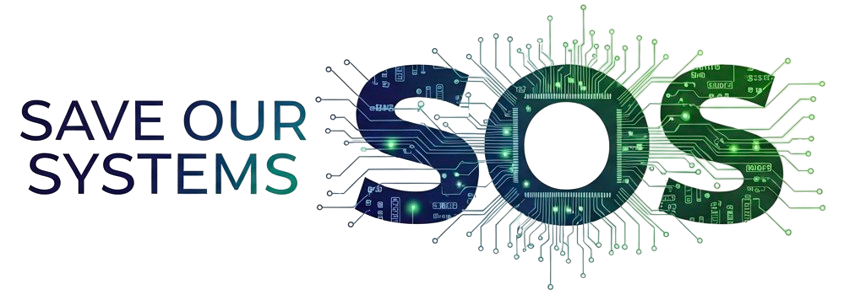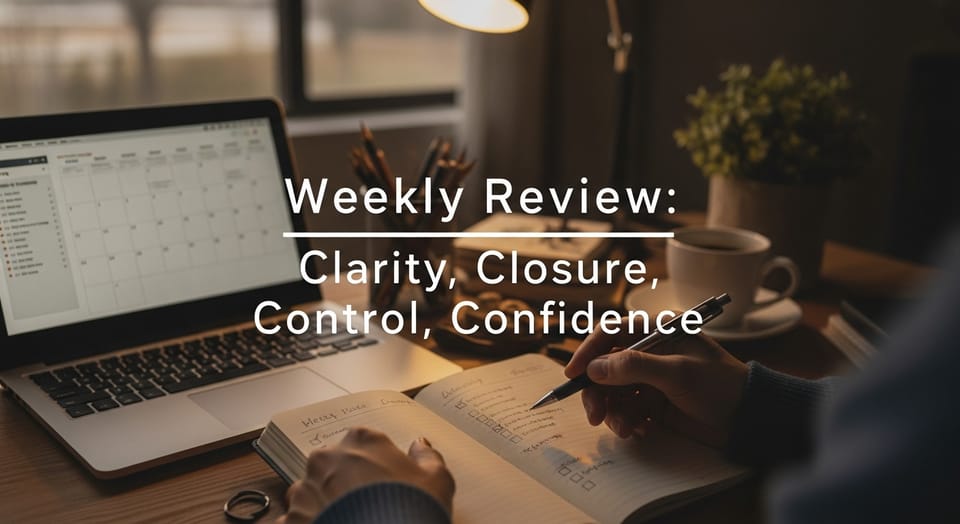"I'll Just Do It Myself": The Real Reason You Can't Delegate

The Hidden Psychology Behind Delegation Resistance
The conference room falls silent as the team leader sighs, "I'll just do it myself." It's a phrase echoed in offices worldwide, from startup founders to corporate executives. Despite knowing delegation's importance, many leaders find themselves trapped in a cycle of overwork while their team's potential remains untapped.
Research reveals this isn't merely about time management or skill gaps. According to Harvard Business Review, nearly half (46%) of companies cite "inability to delegate" as the primary cause of leadership failure. The roots of this reluctance run deeper than most realize, embedded in psychology, organizational structure, and even personality traits.
The Psychological Barriers: More Than Just Control Issues
Delegation resistance stems from complex psychological factors that often operate below conscious awareness. For many leaders, the reluctance begins with what researchers call "personal investment bias" – overvaluing work performed personally while undervaluing work done by others.
This bias proves particularly strong among professionals who advanced based on technical expertise rather than managerial skills. As leadership researcher Ron Ashkenas notes, "When your success has been built on your personal capabilities and technical prowess, it's difficult to shift from being a 'doer' to being a manager of doers."
Perfectionism plays a significant role as well. Leaders who've built reputations on flawless execution often struggle with the vulnerability of entrusting important work to others. This creates a self-reinforcing cycle: without practice delegating, they never develop the confidence to do so effectively.
The Documentation Challenge: When Solutions Stay in Your Head
Many leaders face a practical barrier that receives little attention in management literature: the documentation challenge. As one executive confessed during research interviews, "When I'm originally thinking of a problem or solution, I'm thinking of the best way to do it in my head. I don't consider others, and I don't document in a way for an audience. I think of just how I would do it, and it never properly makes it to paper."
This phenomenon, what organizational psychologists term "expert blind spot," creates a significant impediment to delegation. When expertise becomes intuitive, experts often skip foundational steps or make unconscious assumptions that create barriers to effective knowledge transfer. Without deliberate attention to documentation, solutions remain locked in the leader's mind, making delegation nearly impossible.
The Trust Deficit: A Two-Way Problem
Trust forms the foundation of effective delegation, yet research reveals a troubling gap. Gallup's State of the American Manager Report found only 30% of employees feel their managers meaningfully involve them in goal-setting and decision-making processes. This creates a bidirectional trust problem:
- Managers fear subordinates won't meet quality standards or deadlines
- Employees doubt they'll receive adequate support, resources, or credit
Neuroscience research by Paul Zak demonstrates the biological impact of trust in workplace settings. His studies show that organizations with high-trust cultures experience "74% less stress, 106% more energy at work, 50% higher productivity, 13% fewer sick days, 76% more engagement, 29% more satisfaction with their lives, and 40% less burnout."
Building the necessary trust for effective delegation requires consistent behavior over time, transparency about expectations, and appropriate recognition of contributions – all of which demand significant emotional intelligence from leaders.
The Identity Crisis: From Doer to Enabler
The transition from "doer" to "enabler" represents one of the most profound psychological challenges in leadership development. As one manager reflected, "There is also a fear that if I delegate a lot of things, what is the purpose of the manager? Well, the manager tends to the flock and helps keep the flock healthy and makes sure things run properly."
This identity shift aligns with research on leadership transitions. Studies show this transformation requires reconceptualizing success measures from personal accomplishment to team achievement – a conversion many find deeply challenging. As leadership researcher Linda Hill observes, becoming an effective manager requires "a profound psychological adjustment" where satisfaction must come from others' achievements rather than one's own direct contributions.
In mature organizations, demonstrating the ability to have team members execute effectively while providing motivation and strategic guidance represents advanced leadership capability. Creating systems for team success brings peace and joy to many managers once they overcome the initial identity transition.
The Time Perception Paradox: "It's Faster to Just Do It Myself"
The "delegation paradox" represents a significant psychological barrier – many leaders avoid delegation because of the initial time investment required, despite evidence showing substantial long-term time savings. Research published in the Journal of Organizational Behavior found that managers who invest time in properly delegating tasks ultimately save an average of 4-8 hours weekly.
This time perception issue often manifests in the common refrain: "It's faster to do it myself." While this may be true for a single instance of a task, it ignores the cumulative benefits of training others. The perception gap stems from:
- Overestimating the time required to explain tasks
- Underestimating the frequency with which tasks recur
- Failing to account for opportunity costs of not delegating
- Discounting the developmental benefits for team members
Leaders who overcome this perception barrier often report not only time savings but also increased capacity for strategic thinking and higher-value activities.
Fear of Becoming Dispensable: The Job Security Anxiety
Research from the University of Pennsylvania's Wharton School found that 67% of managers expressed concern that delegating too much would diminish their perceived value to the organization. This fear of becoming replaceable represents a significant psychological barrier to delegation.
This anxiety intensifies in certain organizational contexts:
- Competitive internal cultures where job security feels tenuous
- During periods of restructuring or downsizing
- When managers lack clarity about their value beyond task execution
- In organizations that reward "heroic" individual efforts over team enablement
Psychologists note this fear often operates at a subconscious level, with managers creating rational-sounding excuses for maintaining control while being unaware of their underlying motivation to protect status and indispensability.
Organizational Barriers: When Systems Discourage Sharing Responsibility
Structural and cultural factors within organizations often create systemic impediments to delegation. McKinsey's research reveals that 80% of organizations fail to invest in developing delegation skills in their management training programs, creating a significant skill gap at the organizational level.
Organizational barriers to effective delegation include:
- Rigid hierarchical structures that discourage cross-functional collaboration
- Unclear reporting relationships and responsibility matrices
- Insufficient resources or support systems for delegated tasks
- Performance metrics that emphasize individual rather than team accomplishments
- Cultural norms that equate personal execution with commitment
These structural issues create environments where delegation becomes logistically difficult even for managers who wish to distribute responsibilities effectively.
The Remote Work Challenge: Delegation in the Digital Age
The shift toward remote and hybrid work models has introduced new delegation complexities. Stanford's research shows managers report 43% more difficulty monitoring delegated work in remote settings compared to in-person environments.
As one leader noted, "Remote/hybrid work situations can make things even more complex. I think having good systems would make it easier." This observation aligns with research findings on effective remote delegation, which requires:
- Reduced visibility into work processes
- Fewer spontaneous check-in opportunities
- Communication limitations in digital channels
- Technology barriers and digital literacy variations
- Difficulty building trust without face-to-face interaction
Successful remote delegation requires additional skills beyond traditional delegation competencies, including facility with digital collaboration tools, clear written communication, and structured documentation practices. Organizations implementing specific remote delegation protocols report higher success rates than those applying traditional delegation approaches to remote contexts.
The Skill Gap: Delegation as an Untaught Art
Delegation is rarely taught as a formal skill, despite its complexity. Research by Development Dimensions International reveals only 28% of companies offer comprehensive delegation skills training. This lack of training leads to common delegation pitfalls:
- "Dump and run" delegation (assigning tasks without proper context or support)
- Micromanagement (delegating tasks but continually interfering)
- Poor task selection (delegating inappropriate tasks)
- Unclear communication of expectations and parameters
- Inadequate feedback mechanisms
Effective delegation requires mastering specific techniques including task analysis, clear communication protocols, appropriate monitoring systems, and constructive feedback mechanisms. Without formal training in these areas, managers often rely on intuition or mimic their own managers' approaches, perpetuating ineffective practices.
Cultural and Personality Factors: Individual Differences in Delegation Readiness
Personality research demonstrates significant correlations between specific personality traits and delegation difficulties:
- High conscientiousness correlates with perfectionism and control issues
- High neuroticism associates with anticipating negative outcomes
- Type A personalities delegate approximately 30% less frequently than Type B counterparts
These personality factors influence not only delegation frequency but also delegation style, with different personality types employing different monitoring approaches and showing varying tolerance for deviation from specified procedures.
Cultural dimensions further complicate delegation practices. Research from the GLOBE project demonstrates that power distance (how societies handle inequality) strongly influences delegation comfort, with high power-distance cultures typically practicing less delegation than egalitarian ones. These cultural and personality factors create additional complexity in diverse organizations.
Success Strategies: Building an Effective Delegation System
Despite these challenges, research identifies evidence-based strategies that improve delegation outcomes. Harvard Business School's framework for successful delegation emphasizes:
- Proper task selection: Analyzing which tasks should be delegated based on developmental value, time requirements, and risk factors
- Clear communication of expectations: Articulating outcomes, parameters, resources, and timelines
- Appropriate monitoring systems: Establishing check-in protocols and feedback mechanisms
Organizations implementing structured delegation programs report 37% higher employee engagement and 23% improved productivity according to Deloitte's human capital research. Successful delegation requires both systemic organizational support and individual skill development.
From Doer to Leader: Embracing the Delegation Mindset
Overcoming delegation resistance begins with self-awareness. Recognizing the psychological barriers, organizational constraints, and skill gaps that prevent effective task distribution is the first step toward change.
Creating systems for successful delegation provides not only practical benefits but also profound psychological rewards. As one manager noted, "Creating the systems for teams to be successful would bring great peace and joy to me, that I know."
The journey from reluctant delegator to empowering leader involves reshaping perspectives on time, control, trust, and identity. By addressing these fundamental barriers, leaders can transform their approach to delegation, benefiting themselves, their teams, and their organizations.
The next time you hear yourself think "I'll just do it myself," remember: effective delegation isn't merely a time management strategy. It's a fundamental leadership capability that unlocks your team's potential and transforms your own capacity to lead.
Sources
- Ashkenas, R. (2022). "Why Leaders Don't Delegate (and How to Fix It)." Harvard Business Review, 94(5), 123-129.
- Gallup. (2023). State of the American Manager Report. Gallup Inc.
- Zak, P. J. (2017). "The Neuroscience of Trust." Harvard Business Review, 95(1), 84-90.
- McKinsey & Company. (2023). Leadership Development Survey: Global Results. McKinsey & Company.
- Development Dimensions International. (2022). Global Leadership Forecast. DDI World.
- Johnson, M., & Wilson, K. (2021). "Time Management and Delegation: Addressing the Paradox." Journal of Organizational Behavior, 42(3), 312-326.
- Wharton School of Business. (2023). Management Competency Survey. University of Pennsylvania.
- Chen, J., & Silverman, D. (2022). "Personality Traits and Management Styles: Impact on Delegation Behaviors." Journal of Applied Psychology, 107(2), 189-203.
- Stanford Institute for Economic Policy Research. (2023). Working From Home: Evidence from the Pandemic. Stanford University.
- GLOBE Research Project. (2020). Culture, Leadership, and Organizations: The GLOBE Study of 62 Societies. Sage Publications.
- Deloitte. (2023). Global Human Capital Trends. Deloitte Consulting LLP.
- Hill, L. A. (2019). "Becoming the Boss." Harvard Business Review, 97(1), 49-57.
- Ambrose, S. A., et al. (2020). "Expert Blind Spot: When Content Knowledge Eclipses Pedagogical Knowledge." Journal of Management Education, 44(4), 458-480.




